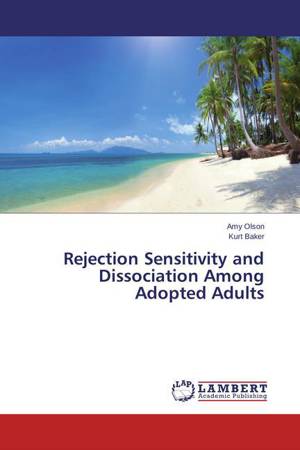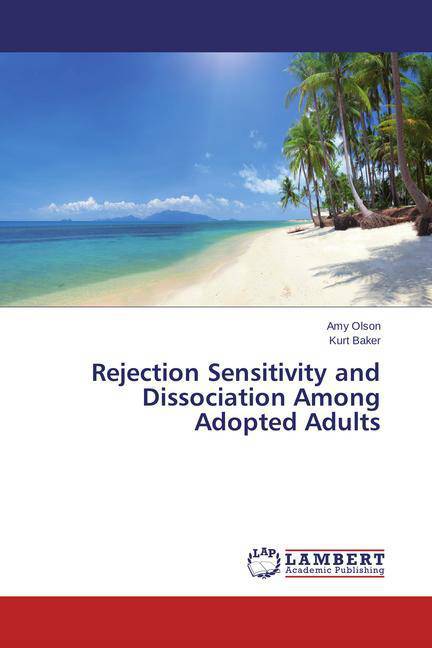
- Afhalen na 1 uur in een winkel met voorraad
- Gratis thuislevering in België vanaf € 30
- Ruim aanbod met 7 miljoen producten
- Afhalen na 1 uur in een winkel met voorraad
- Gratis thuislevering in België vanaf € 30
- Ruim aanbod met 7 miljoen producten
Zoeken
Rejection Sensitivity and Dissociation Among Adopted Adults
Amy Olson, Kurt Baker
Paperback | Engels
€ 28,45
+ 56 punten
Omschrijving
Many theorists posit that the difficulties adopted people experience arise from reflection on what it means to be adopted, while some adopted people assert that the transition from biological parent to adopted family is experienced as a traumatic loss of an attachment relationship. Pinning down the relevant conscious and sub-conscious experiences of adopted infants and young children is difficult to do. Still, in order for adopted people to understand impulses and govern behaviors which may stem from feelings associated with the loss of early attachment relationships, it is helpful to peruse the relevant scientific literature. This study examines domestic and international adoption as well as foster care, and how dissociation and rejection sensitivity relate to the traumatic experience of loss and the reflective internalization of that experience. Adopted people can decide for themselves whether or not these tendencies are to be found among their repertoire of behaviors.
Specificaties
Betrokkenen
- Auteur(s):
- Uitgeverij:
Inhoud
- Aantal bladzijden:
- 84
- Taal:
- Engels
Eigenschappen
- Productcode (EAN):
- 9783659619533
- Verschijningsdatum:
- 22/10/2014
- Uitvoering:
- Paperback
- Afmetingen:
- 150 mm x 220 mm
- Gewicht:
- 136 g

Alleen bij Standaard Boekhandel
+ 56 punten op je klantenkaart van Standaard Boekhandel
Beoordelingen
We publiceren alleen reviews die voldoen aan de voorwaarden voor reviews. Bekijk onze voorwaarden voor reviews.











